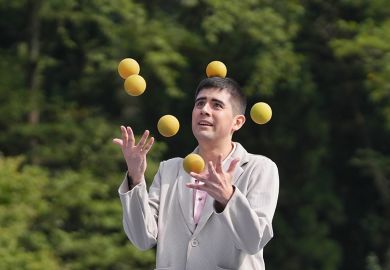The benefits of treating PhD students as university employees, an issue under consideration by some institutions in the UK and US, have been spotlighted by the recent completion of reforms in Sweden.
Changes to the law in Sweden, implementing an election promise made by the Social Democratic Party in 2014 aimed at equalising the working conditions of doctoral students and university employees, mean that the vast majority of PhD candidates are now treated as employees of their institution rather than students.
Worldwide, PhD students often perform similar research and teaching duties as staff employed by a university, but without the benefits. For them, employees status could bring access to perks such as sick leave, parental leave or an occupational pension.
For universities, the advantages could include reaping the benefits from an enhanced research contribution from PhD candidates, as well as increased oversight of the progression of PhD theses. However, institutions would bring extra spending on themselves were they to treat PhD students as employees.
In some countries throughout Europe, including Norway, Denmark, Germany and the Netherlands, doctoral candidates are often treated as employees rather than students. However, this is not the norm worldwide.
In Sweden, study grants, which provided a monthly income of SKr 15,500 (£1,359) for full-time doctoral candidates for up to 12 months of a PhD, can no longer be used to finance doctoral studies. But the changes in Sweden have not happened overnight. Even before the new law, employment as a doctoral candidate was the most common way of financing a PhD.
Anna Ilar, chair of the Swedish Association of University Teachers and Researchers’ Association of Doctoral Candidates, said that most institutions have been taking measures to improve the working conditions of PhD candidates for several years.
“The proportion of newly registered doctoral candidates being financed with study grants has therefore gone down dramatically during the past couple of years,” she said. About two-thirds of newly registered PhD candidates in 2015 were employed by their university.
In the US, some universities are now making it possible for PhD candidates to join unions that can fight for better terms and conditions.
Kent Holsinger, vice-provost for graduate education at the University of Connecticut, said that recent changes at his institution mean that some PhD or master’s degree candidates now have a dual status of student and employee.
This happens when a PhD student provides teaching or research services to the university and they receive the title of graduate assistant, which means that they can be represented by a union.
Some faculty staff think that treating graduate students as employees is a “threat to the mentor-mentee relationship that is at the core of PhD training”, Professor Holsinger said. But others believe that the protection it offers against exploitation is important, he added.
“They regard the explicit guarantees of minimum compensation and leaves of absence, for example, as providing graduate students with reliable information that they can use to make appropriate choices regarding their personal lives,” he continued.
But two-thirds of those undertaking PhD or master’s degrees at the university do not perform teaching or research duties and therefore remain as students, he added.
Across the rest of the US, the situation is not clear cut. A spokeswoman for the US Council of Graduate Schools said that most universities have viewed graduate students as students first and foremost as US doctoral programmes involve coursework, not just research.
She added: “There is a patchwork of state and federal laws at play: the Department of Labor’s Fair Labor Standards Act, the Internal Revenue Service, and the Department of Education treat graduate students as students, while the National Labor Relations Board recently made the decision to regard them as employees.
“US institutions are still working to understand the implications of the latter decision, which conflicts with other federal guidance on this issue, and how they make these interpretations may vary on their own state laws.”
In the UK, Queen Mary University of London said in 2015 that it was considering making PhD students staff. Although no significant progress has been made on this idea since, Simon Gaskell, the institution’s principal, said that he “remains convinced in the long run that it is the way to go”.
“The sector needs to spend some time getting their heads around it,” he said, adding that the current system of PhD stipends with additional money provided for teaching or demonstrating is “simply outmoded”.
“We need to move to a position where there is a proper contractual relationship between a pre-doctoral researcher and the university,” Professor Gaskell added.
An employee contract for PhD students would have implications for tax liabilities that need to be thought through and Professor Gaskell conceded that it could be more expensive for universities than the current system. But he said that, for him, the cost is not the major consideration.
“For me, the key point is the recognition that a high proportion of our research output is appropriately attributed to the work of PhD students,” he said.
Denise Cuthbert, associate deputy vice-chancellor for research, training and development at RMIT University, in Australia, said that a common complaint among those studying for PhDs in the country is that they do not feel sufficiently engaged in research communities at universities.
“It has not come down to the ‘are they staff or students’ question here, but is rather expressed in terms of the levels of engagement they enjoy and the quality of their research experience,” she added.
Register to continue
Why register?
- Registration is free and only takes a moment
- Once registered, you can read 3 articles a month
- Sign up for our newsletter
Subscribe
Or subscribe for unlimited access to:
- Unlimited access to news, views, insights & reviews
- Digital editions
- Digital access to THE’s university and college rankings analysis
Already registered or a current subscriber?








